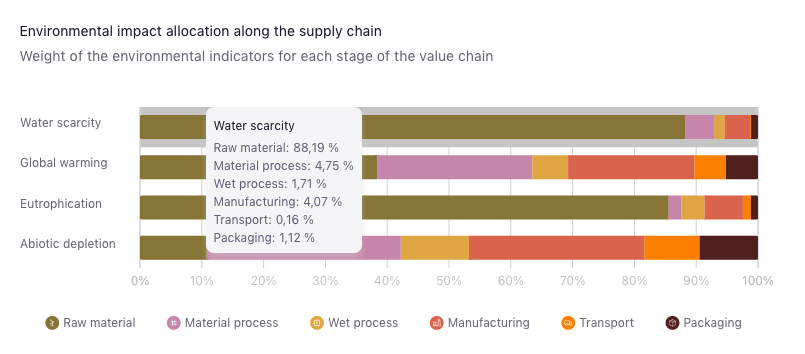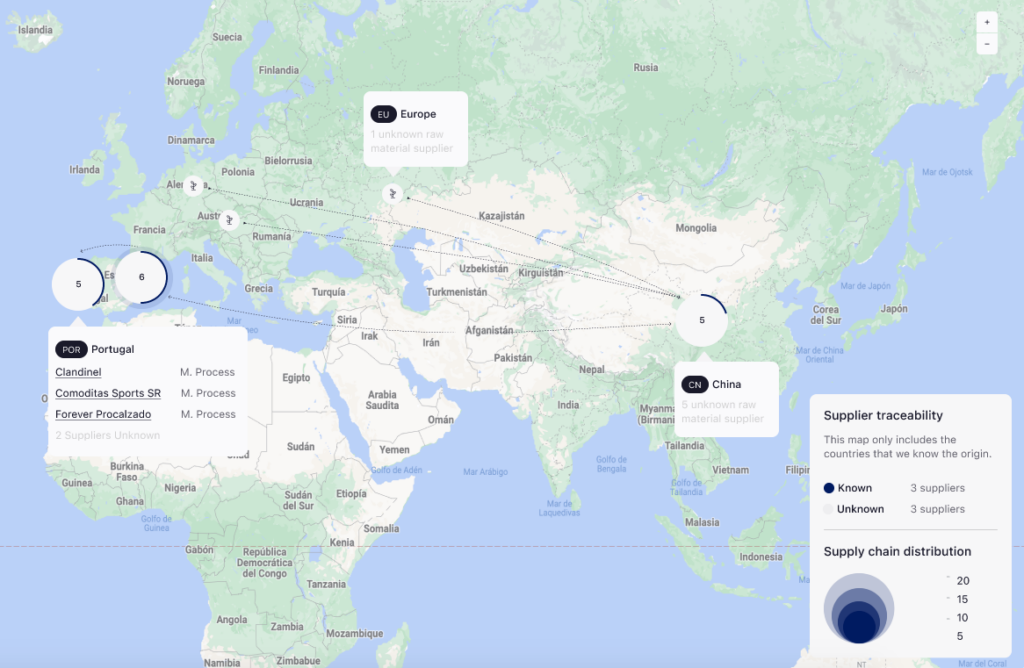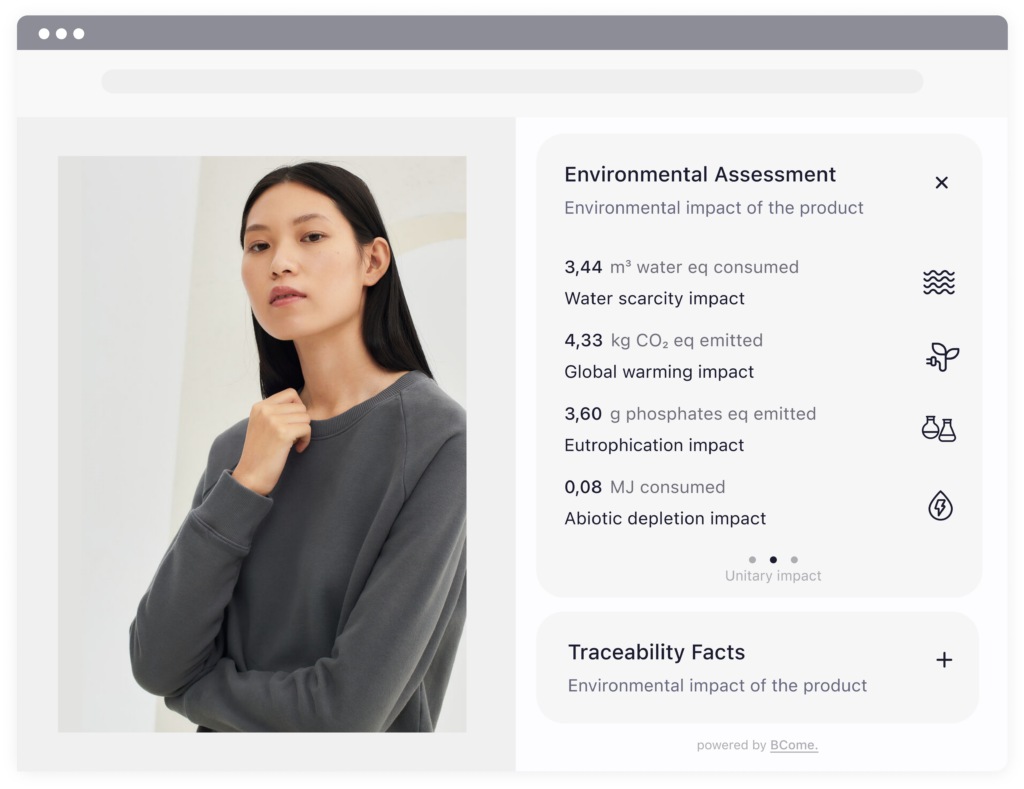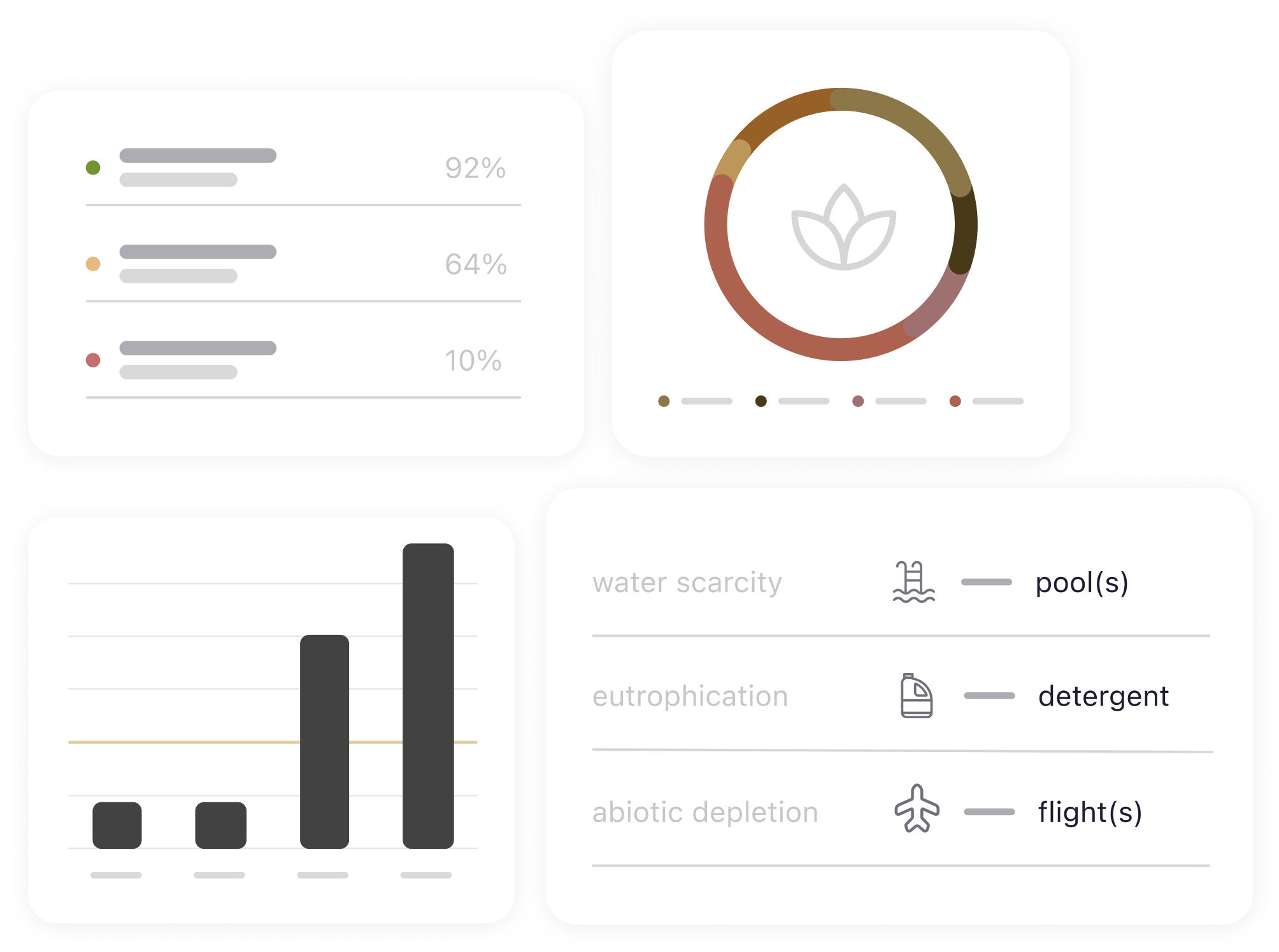Among the legislative updates that we anticipated for this year, the presentation of the first set of standards of the Corporate Sustainability Reporting Directive was one of the most anticipated news by the fashion industry. What criteria will the companies in the textile sector have to declare in these reports? Who should implement this regulation and when? We reveal the latest updates presented by the European Commission and we propose in a practical way how your business can prepare to comply with all of them.
The CSRD introduces updates that seek to ensure that companies operating on European territory respect human rights and the environment in global supply chains
As we pointed out in mid-2022, the European Union considers that the efforts made by companies to achieve the objectives established in the Green Deal are few. The Corporate Sustainability Reporting Directive comes with the goal of creating a standardized system that allows investors to properly assess and compare the actual performance and impact of all industries. The CSRD introduces updates that seek to ensure that companies operating on European territory respect human rights and the environment in global supply chains.
Which companies will have to comply with this directive and from when?
European companies
- All large companies that meet 2 of these 3 criteria:
- Revenues of more than 40 million euros
- Total assets over 20 million euros
- More than 250 employees
- All companies with securities listed on EU regulated markets, except micro-companies.
- Listed SMEs benefit from an additional 3 years for implementation.
Non-European companies
- Companies with a net turnover in the European Union of more than €150M (in the year prior to the last financial year) and with at least one subsidiary or branch in the EU.
The entry into force of this directive is expected from January 1, 2024 for companies already subject to the Non-Financial Information Directive. In 2025, it’s expected that the rest of the large companies will be able to apply it and from 2026 it will be the turn of the SMEs that are listed on the stock market.
What criteria will have to be declared in the Corporate Sustainability Reports?
The European Financial Reporting Advisory Group (EFRAG) approved last November the final version of the European Sustainability Reporting Standards (ESRS), which establish the rules and requirements for companies to report on the impacts, opportunities and risks related to the sustainability within the framework of the Corporate Sustainability Reporting Directive. The approved standards are divided into the following categories:
Environment
- Climate change. Among other requirements, there is the disclosure of gross indirect Scope 3 GHG emissions in metric tons of CO2 eq.
BCome allows you to discover what your CO2 eq emissions are throughout your supply chain.
- Pollution. One of the requirements is that the company disclose the pollutants that are generated or used during production processes, among others, the emissions of inorganic pollutants.
BCome provides you with information about the accumulation of phosphates and nitrates released by the use of pesticides, fertilizers, detergents and other chemicals in an ecosystem, including knowing their equivalence.

- Water and marine resources. The standard defines that among the reported information, there must be the total water consumption in m3 in areas with material water risk, including areas of high water stress.
Thanks to the AWARE methodology applied by BCome to assess the water impact of textile collections, it’s possible to know the potential for water deprivation, either for humans or ecosystems, due to water consumption in the product value chain.

- Biodiversity and ecosystems. If the company identifies impacts related to the status of the species, it should consider, among other aspects, one or more indicators that measure changes in the number of individuals of a species within a specific area.
- Use of resources and circular economy. The company is required to disclose, among other indicators, the rate of use of circular materials.
BCome’s sustainability index allows you to know the level of circularity of all your products, broken down both at a corporate level and by materials.
Social
Under this category, companies are required to report on their approach to identify and manage actual and potential impacts on workers in the value chain. Including working conditions, access to equal opportunities and human rights issues such as child labor or forced labor.
The traceability tool that BCome is about to bring to light will allow you to locate your suppliers, as well as associate them with each of the stages of the value chain.

BCome’s sustainability index also offers the People indicator that evaluates all the practices created by the company to ensure that labor, social and animal conditions are safe and ethical.
Governance
The governance category covers the strategy, processes and performance of a business in terms of business conduct. This standard focuses on practices that include corporate culture, the management of relationships with suppliers, the prevention of corruption or the efforts of companies to exercise political influence through lobbies, among others.
How should all this information be provided?
The information requested by the Corporate Sustainability Reports Directive must be provided in a digital format that guarantees easy access and consultation by users. The integrations offered by BCome make it easy to publish information related to the sustainability performance of your business on your website.

The information declared by the companies must be certified by an auditor or an independent certifier
Finally, one of the novelties introduced by the CSRD is that the information declared by the companies must be certified by an auditor or an independent certifier. Having the support of an external entity such as BCome to evaluate this information will be crucial to guarantee the credibility of the data and that there are no problems when reviewing the information provided.
The standards collected through these three categories are expected to be adopted by the European Union as of June 2023. However, since their content has already been approved, we invite you to anticipate their adoption to start working on its fulfillment. Don’t know where to start? We tell you!









